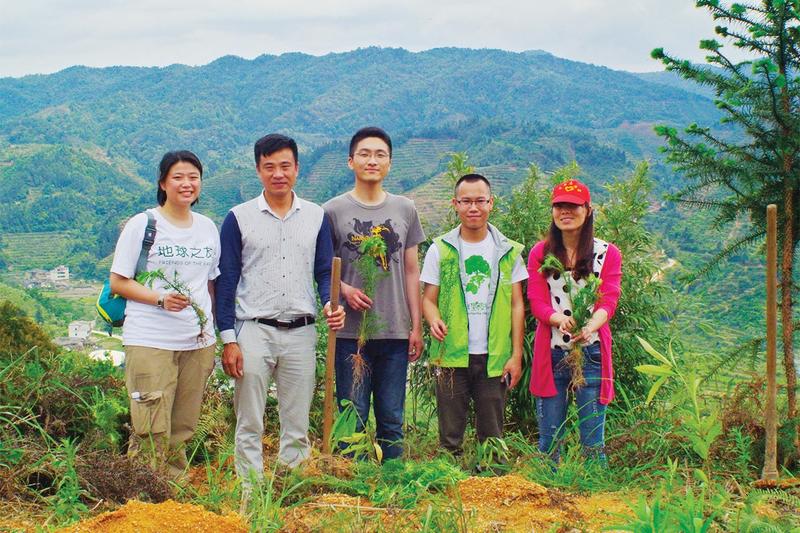A river that seals bonds


Planting seeds of romance
For Wen, the tree-planting project he participated in 2010 fueled his passion for nature conservation, and showed him that millions of people in the Dongjiang downstream depend on the water from his hometown.
Little did he know that he was also on his way to building up a romantic relationship. In 2012, Friends of the Earth asked Wen to take care of the trees in "Hong Kong Forest" that were planted by local villagers and volunteers from Guangdong and Hong Kong. Wen helped find suitable locations for planting trees, contacted suppliers to procure saplings, and got villagers together to protect the trees. As of 2017, about 185,000 trees had been planted.
Kwan first met Wen in 2016 when she turned up to supervise his work. Their passion for nature drew them closer. They maintained contact after the project ended and finally tied the knot in May this year in Xunwu.
In 2004, scientists from Jiangxi identified the long-disputed origin of the Dongjiang River — the Yajibo Mountain in Xunwu county. It was good news for Xunwu, but not so much for the residents of Dongjiangyuan village, which was at the base of the mountain. It meant they would have to vacate their homes, which had been there for generations, to avoid contaminating the drinking water for millions of people in the river's downstream.
Zhang Changquan, former Party secretary of Dongjiangyuan village, told China Daily the last family in the village moved out in 2017. The Yajibo Mountain is now a no-man's land, he said, pointing to the broken relics of mud houses buried among the bushes. About 500 households in the village, the nearest human habitat to the headwater, had to be evacuated to ensure better protection and less interference with the water supply.
The villagers left behind vacant homes, sheds, crops and fruit trees in the fields, while the ridges are now covered with weeds and wild flowers. Only local rangers, dressed in green uniforms and armed with hooks, can be regularly seen there now. Signs of trees of navel oranges — a well-known specialty of Jiangxi — could still been seen at the site where Zhang's village used to stand.
Along the way to the source of the Dongjiang River in the middle of the mountain, Zhang introduced the forest like a hospital charge master — "Here is the grass-leaf sweet flag, a popular potted plant grown on rocks in streams, and that is the wild chestnuts we used to eat."
The headwater's fame has also put the small county that relies heavily on agriculture in the spotlight, with the place having undergone major changes. To Zhang, the mountain is still the same as when they left the village. But he and the villagers know it is now a treasured land that has to be fully protected.
"The Dongjiang River has bonded me and my wife. It linked me to a broader world. It saw the start of my career and our love journey. It really means a lot to me," Wen said. A young girl whose family had once received the Hong Kong volunteers had just enrolled at a Hong Kong university, he added.
























